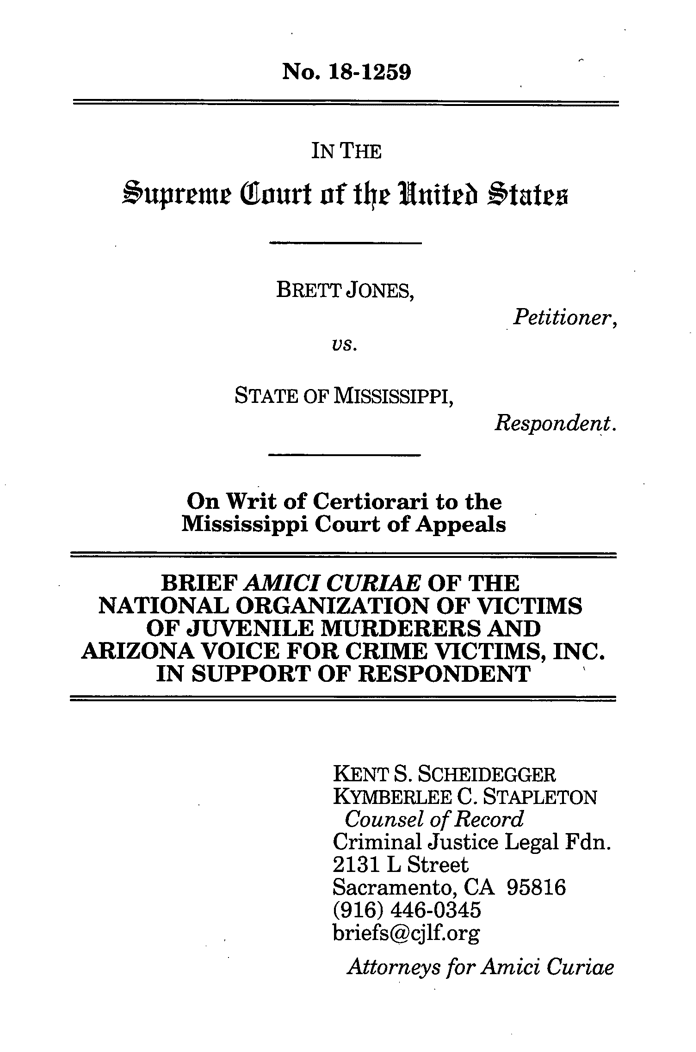
Summary of Argument
The pain that surviving family members experience when their loved one is violently and horrifically murdered is indescribable. Life without the possibility of parole exists for good reason and legal finality for the family is one of them. Miller's core holding requires an individualized sentencing process in which a judge or jury has the opportunity to consider mitigating evidence of youth. Jones received a sentencing hearing in which a judge evaluated and considered the factors laid out in Miller and determined that life without parole was an appropriate sentence. A constitutionally mandated factual finding of permanent incorrigibility would disrupt legal finality and require many murder victims' families to relive much of the trauma they thought they had put to rest.
The possibility of parole for a murderer is a life sentence for many victims' families. An unrelenting series of parole hearings in which the victims' families must repeatedly oppose parole prolongs their suffering. The frequency and intensity of each re-engagement with the killer years after the murder can trigger devastating flashbacks and memories and reopen traumatic wounds.
Open Amicus Brief as PDF